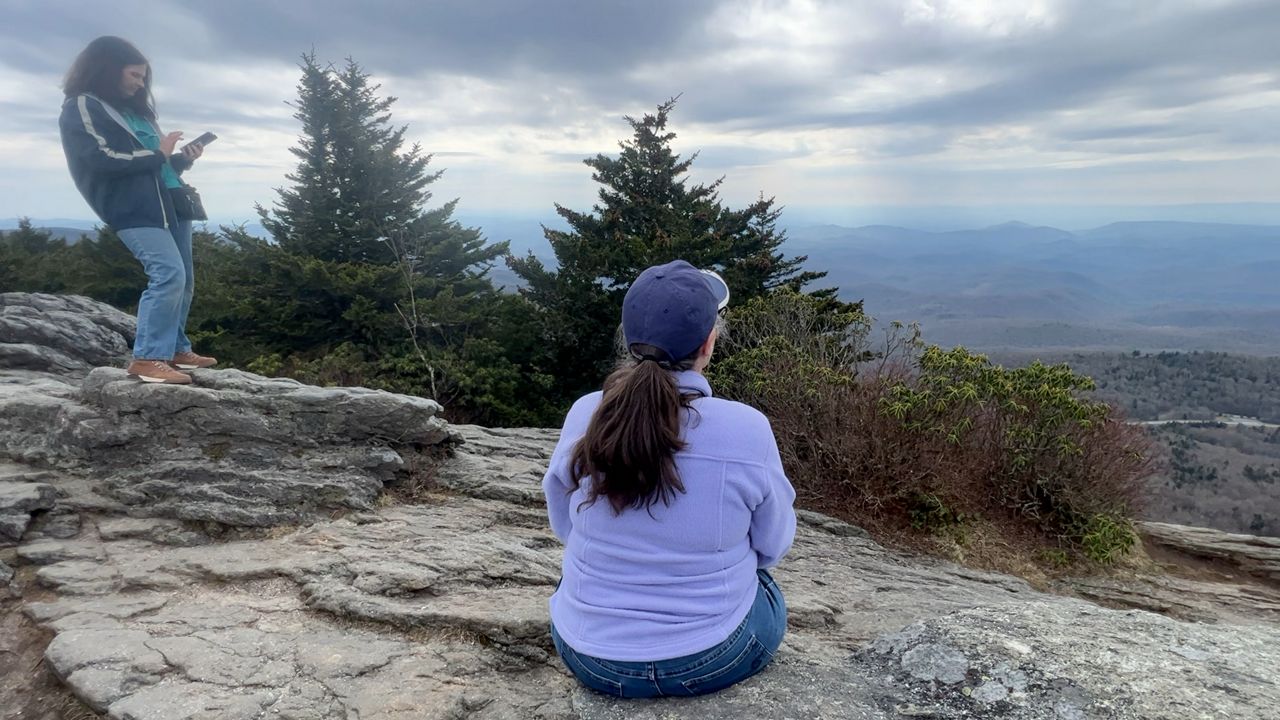BOONE, N.C. — One moment changes your life forever. That's what Dan Caton said happened for him at an early age.
He was just a kid when he and a neighbor spotted Jupiter's satellites.
"Got really interested, and we built telescopes," Caton said.
It's a love he's had for his entire life. He is now the Director of Observatories at Appalachian State University.
"The computer screens are turned off, but they are all running," Caton said. "We mostly view remotely."
While they don't literally work under the stars anymore, the observatory does, using telescopes to look into the night sky. The observatory pointed its big telescope at a bright star during the eclipse for people to see.
"We study all kinds of different stars," Caton said.
Caton remembers 2017, when his daughter saw the eclipse.
"She called us and she was crying," Caton said. "It's truly that inspirational."
He says while the eclipse only lasted minutes, it's important to remember to always wear glasses when looking at the sun because looking at it is always dangerous.
"It's just interesting," Caton said. "It doesn't happen very often in one location. It's an interesting way to connect with the sky.



